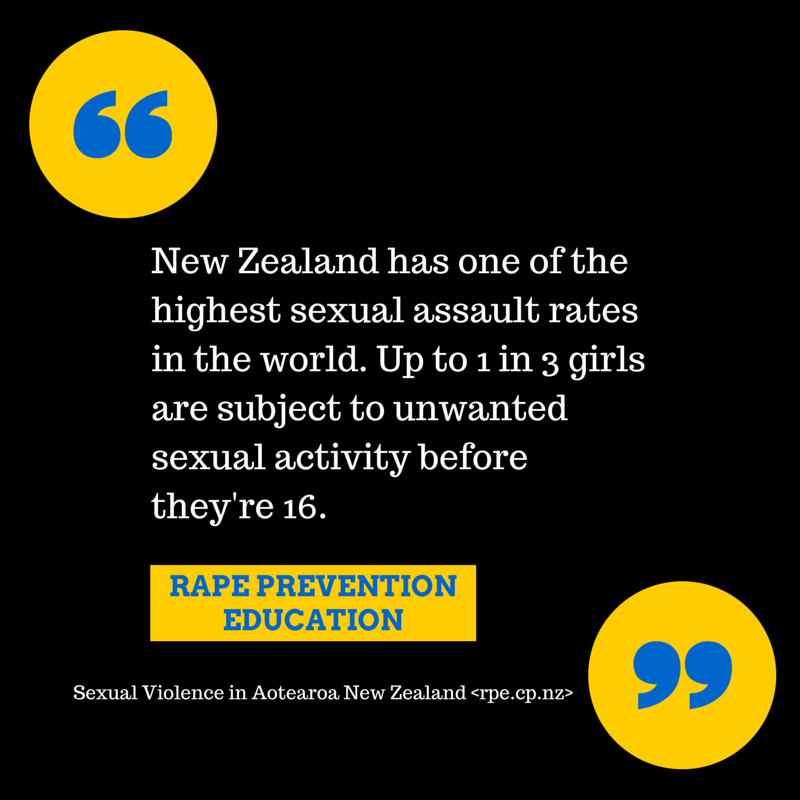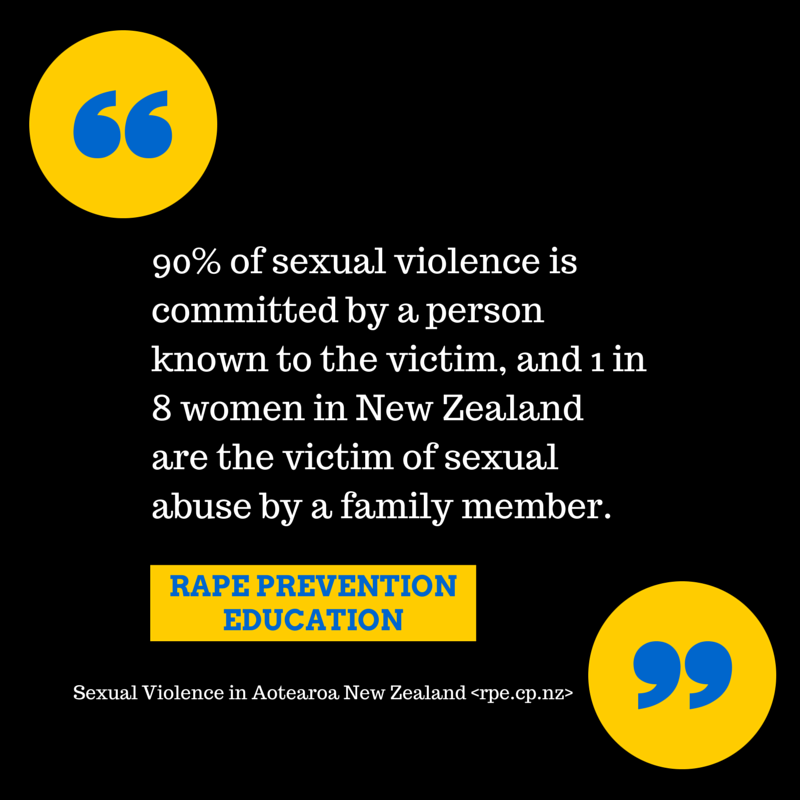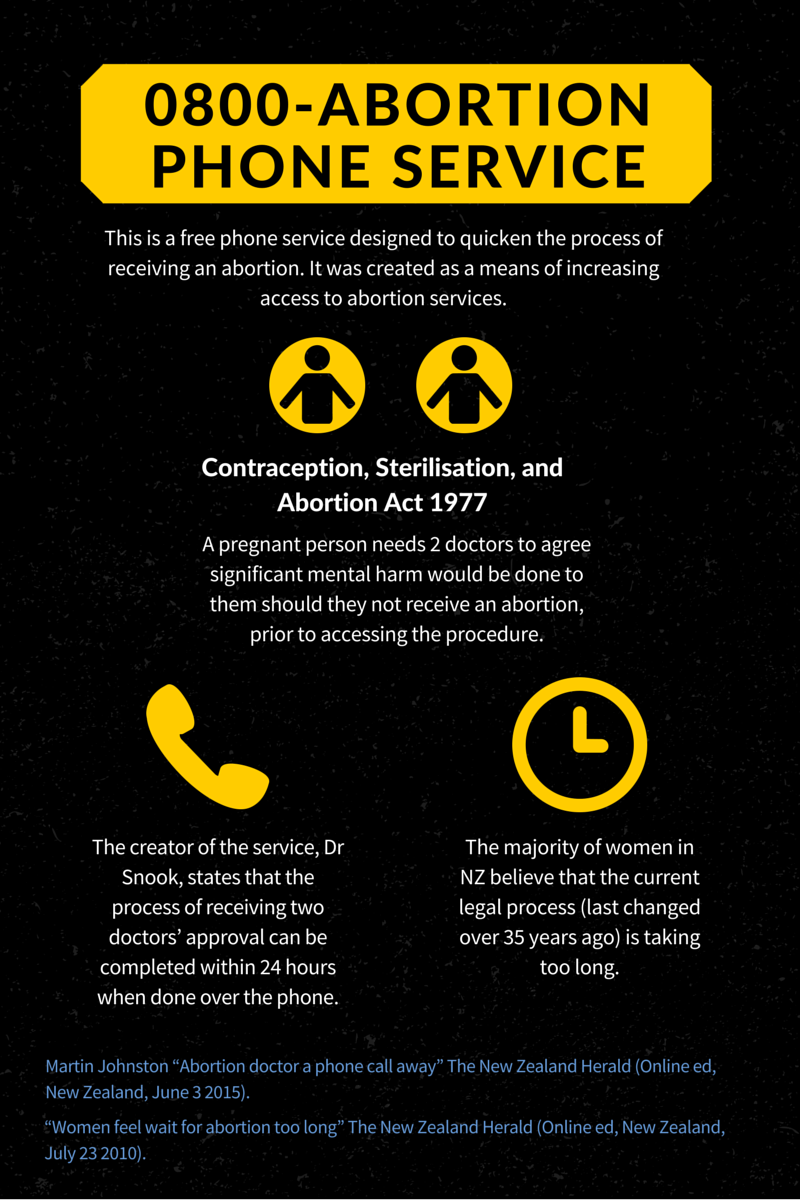Cross-Examination: Abortion Law Reform in New Zealand - The Continuing Conversation
Rebecca Hallas, Content Contributor
Since my first article on New Zealand’s abortion laws was published, there have been significant developments in the continuing debate over access to abortion. For the first time in almost 40 years, New Zealand’s abortion laws may change as a result of three concurrent developments in the ongoing debate around abortion law reform.[1]Parental Information Requirement for Abortions for Women Under SixteenTaranaki mother Hillary Kieft began petitioning to change New Zealand’s abortion law after her 15 year old daughter became severely depressed following an abortion and attempted suicide.[2] At present, the law allows women under 16 years of age to access abortion services without telling their parents or having to seek their consent. The proposed change, for which National Party MP Chester Borrows has expressed his individual support, would require evidence of parental knowledge in order for those under the age of 16 to receive the procedure. It is hoped that such a procedure will provide a greater support to young women in Mrs. Kieft’s daughter’s situation.Pro-choice advocates have voiced significant opposition to the proposal. In an interview with the Equal Justice Project conducted prior to this development, the Abortion Law Reform Association of New Zealand (ALRANZ), a leading pro-choice advocacy group, stated that:[3]
“We would like to ensure no changes are made to the Care of Children Act 2004, which allows minors of any age to access reproductive health care without parental consent, interference, or notification. Children with supportive parents involve them in their decisions already. Children with dysfunctional parental relationships should not have to put themselves at risk, either risk of abuse or risk from foregoing reproductive health care entirely.”
The subject of abortion is rife with complexities. A requirement of parental knowledge certainly may have helped Mrs. Kieft’s daughter; a support system can be crucial when coping with the difficult decision to abort. However, the requirement would arguably have caused much suffering to others. There are numerous reasons young people choose not to tell their parents about their decision to abort — often far more convoluted than mere “embarrassment”, which Mr. Borrows mentioned as the major impediment to their doing so.[4]More specifically, victims of sexual abuse could be put in a tragic position should parental knowledge be required prior to an abortion. In reference to this problem, Mr. Borrows stated that we should let “Police and Child, Youth and Family… deal with the abusers with the powers they already have”.[5] But the current system is failing victims of abuse – New Zealand has one of the highest sexual assault rates in the world. In New Zealand, up to one in three girls are subject to unwanted sexual activity before they’re 16.[6] Moreover, 90% of sexual violence is committed by a person known to the victim, and 1 in 8 women in New Zealand are the victim of sexual abuse by a family member.[7] Therefore, the proposed requirement of parental consent may be akin to forcing victims to inform their abusers of their decision to abort for victims of sexual violence and incest, potentially subjecting them to increased violence and control. Furthermore, as pointed out by ALRANZ spokeswoman Annabel Morell, the majority of teenagers who do not tell their families of their need to abort do so because they fear being kicked out of home, or anticipate being coerced into continuing with the pregnancy.[8] Family Planning chief executive Jackie Edmond concurs, adding that the imposition of this law would be a “backwards step” in a country that already has restricted abortion laws.[9] Similarly, Rotovegas Youth Health clinical leader Dr. Tania Pinfold feels the law could be seriously harmful, noting that the parental knowledge requirement might daunt many teenagers, and delay their telling their parents. [10] This may result in the abortion occurring later in the pregnancy or even attempt to end the pregnancy themselves. For young women whose parents are opposed to abortion, the requirement to inform their parents may harm their relationship with their family.
Furthermore, as pointed out by ALRANZ spokeswoman Annabel Morell, the majority of teenagers who do not tell their families of their need to abort do so because they fear being kicked out of home, or anticipate being coerced into continuing with the pregnancy.[8] Family Planning chief executive Jackie Edmond concurs, adding that the imposition of this law would be a “backwards step” in a country that already has restricted abortion laws.[9] Similarly, Rotovegas Youth Health clinical leader Dr. Tania Pinfold feels the law could be seriously harmful, noting that the parental knowledge requirement might daunt many teenagers, and delay their telling their parents. [10] This may result in the abortion occurring later in the pregnancy or even attempt to end the pregnancy themselves. For young women whose parents are opposed to abortion, the requirement to inform their parents may harm their relationship with their family. Consequently, this change may endanger the wellbeing of vulnerable young women. However, Mrs. Kieft’s statement that her daughter received no post-abortion counselling, nor any follow-up from the abortion providers, is indicative of a failure in New Zealand’s system when dealing with young people who abort. Currently post-abortion counselling can be requested, but is not mandatory.[11] It might be prudent to introduce a requirement that under-16s are offered some additional form of support — potentially through a counsellor encouraging them to talk to their parents, or if the minor is in an abusive situation, offering them help through other means. These types of changes could prevent tragic situations like Mrs. Kieft’s, while protecting vulnerable victims of abuse. It would not be necessary to introduce the changes Mrs. Kieft proposes in order to achieve these goals.Legal Challenges Over Distinction Between Medical and Surgical AbortionsIn other developments, pro-life group Right to Life NZ has taken the Crown Law Office to court, claiming that the Abortion Supervisory Committee’s decision to allow the Tauranga Family Planning Clinic to provide medical abortions is a breach of the law (which refers only to surgical abortions).[12] A medical abortion involves taking two tablets that induce a miscarriage. As well as being less invasive, the abortion appears more “natural”. It is less invasive than a surgical abortion, which requires an invasive operation and hence is more intimidating.[13] Because New Zealand law currently only refers to surgical abortions, Right to Life is arguing the clinic’s license to provide medical abortions should be removed. The Tauranga clinic is at present the only clinic granted a license to perform medical abortions by the Abortion Supervisory Board.[14]
Consequently, this change may endanger the wellbeing of vulnerable young women. However, Mrs. Kieft’s statement that her daughter received no post-abortion counselling, nor any follow-up from the abortion providers, is indicative of a failure in New Zealand’s system when dealing with young people who abort. Currently post-abortion counselling can be requested, but is not mandatory.[11] It might be prudent to introduce a requirement that under-16s are offered some additional form of support — potentially through a counsellor encouraging them to talk to their parents, or if the minor is in an abusive situation, offering them help through other means. These types of changes could prevent tragic situations like Mrs. Kieft’s, while protecting vulnerable victims of abuse. It would not be necessary to introduce the changes Mrs. Kieft proposes in order to achieve these goals.Legal Challenges Over Distinction Between Medical and Surgical AbortionsIn other developments, pro-life group Right to Life NZ has taken the Crown Law Office to court, claiming that the Abortion Supervisory Committee’s decision to allow the Tauranga Family Planning Clinic to provide medical abortions is a breach of the law (which refers only to surgical abortions).[12] A medical abortion involves taking two tablets that induce a miscarriage. As well as being less invasive, the abortion appears more “natural”. It is less invasive than a surgical abortion, which requires an invasive operation and hence is more intimidating.[13] Because New Zealand law currently only refers to surgical abortions, Right to Life is arguing the clinic’s license to provide medical abortions should be removed. The Tauranga clinic is at present the only clinic granted a license to perform medical abortions by the Abortion Supervisory Board.[14]
Spokesman for Right to Life, Ken Orr, appeared confident when he stated that should they win in court, it was unlikely the law would be changed to allow for the clinic to solely provide medical abortions. Parliament’s enacted legislation related to abortion would be more controversial, and therefore politically unpalatable than simply advising the clinic to stop providing medical abortions.[15] The implication is that if Right to Life’s challenge succeeds a source of abortion services in New Zealand could potentially be eliminated, thereby potentially detracting from these womens’ right to bodily integrity.Furthermore, as ALRANZ spokeswoman Annabel Morell has noted, should Right to Life succeed, those from the Bay of Plenty will have to drive for at-least an hour to the Waikato region in order to access an abortion.[16] Ms Morell also noted that when the relevant legislation was first introduced, medical abortions did not exist; hence the confusion surrounding the legality of the provision of medical, as opposed to surgical, abortions.[17] Right to Life NZ’s challenge therefore highlights the danger when advances in medicine, in this case in the areas of abortion and contraception, outstrips the development of the law. Perhaps our laws need to advance too.0800-ABORTION Phone ServiceIn another development, attempts to increase access to abortion services have been made through the creation of 0800 ABORTION – a free phone service designed to quicken the process of receiving an abortion. As noted in my first article, under the Contraception, Sterilisation, and Abortion Act 1977, a pregnant person needs two doctors to agree significant mental harm would be done to them should they not receive an abortion, prior to accessing the procedure.. This greatly delays the process of accessing an abortion.[18]Dr. Snook, who created the service, stated that the process of receiving two doctors’ approval can be completed within 24 hours when done over the phone.[19] This quickening of the process will likely be welcomed by those in favour of greater access to abortion services, as accessing an abortion currently takes four weeks from start to finish.[20]Right to Life has criticized the service. Referring to it as deplorable, the group has drawn arguably hyperbolic parallels between abortion and murdering the disabled or the elderly.[21] Less provocatively, Voice for Life president Bernard Moran suggested that the introduction of the service “trivialised” the legal process.[22]Mr. Moran’s analysis may well be right. The legislation requires two doctors to assess someone’s mental health, and that is arguably difficult to properly evaluate over a phone-call. However, the majority of women in New Zealand believe the current legal process — last adjusted over 35 years ago — is taking too long.[23] The present situation demonstrates the perhaps inevitable difficulties that arise in strictly applying the law when society progresses without concurrent legislative change.
Certainly, public attitudes in New Zealand align with a more liberal perspective on abortion than reflected in the current legislation. In addition to the Green Party’s pro-choice policy, Young Labour has vocally supported the decriminalisation of abortion, and the United Nations has gone as far as to categorize the present restrictions on access to abortion in New Zealand as a form of torture.[24] Moreover, in our interview with ALRANZ, they stated there is a “tendency for politicians to overestimate the conservatism of their constituents” and that the backlash against the Greens’ policy was the result of “a vocal minority rather than a wider consensus”.[25]With mounting pressure on the government, and the electorate perhaps not as opposed to change in this area as politicians may believe, there appears to be some chance that New Zealand’s abortion laws may soon be amended to mirror the current public perception on reproductive health and developments in medicine.
---
[1] Abortion Services in New Zealand, “History of abortion in New Zealand”. <abortion.org.nz>.[2] Catherine Groenstein “Family presents Chester Borrows with abortion petition” The Taranaki Daily News (Online ed, Taranaki, May 26 2015).[3] Interview with Terry Bellamak, National President ALRANZ (Conducted by email by author, 3 May 2015). Email exchange retained by EJP.[4] Chester Burrows “Parents ‘really need to know’” Wanganui Chronicle (Online ed, New Zealand, May 29 2015).[5] Groenstein, above n 2.[6] Rape Prevention Education “Sexual Violence in Aotearoa New Zealand” <rpe.co.nz>.[7] Rape Prevention Education “Sexual Violence in Aotearoa New Zealand” <rpe.co.nz>; Rape Prevention Education “Incest” <rpe.co.nz>.[8] “Abortion: Rights groups weigh in on teen pregnancy” The New Zealand Herald (Online ed, New Zealand, June 4 2015).[9] “Opposition to potential new abortion law” The New Zealand Herald (Online ed, New Zealand, May 27 2015).[10] Rebecca Malcolm “Change to abortion law may ‘put teens at higher risk’” The Rotorua Daily Post (Online ed, New Zealand, June 10 2014).[11] Abortion Services in New Zealand “Who to talk to” <abortion.org.nz>.[12] Alison Morell “Abortion Access Goes Back to Court” (9 April 2015) ALRANZ <alranz.wordpress.com>.[13] Family Planning “Comparing Abortion Methods” <www.familyplanning.org.nz>.[14] “Abortion: Rights groups weigh in on teen pregnancy” The New Zealand Herald (Online ed, New Zealand, June 4 2015).[15] “Anti-abortion group takes Family Planning to court” The New Zealand Herald (Online ed, New Zealand, June 3 2015).[16] Alison Morell “Abortion Access Goes Back to Court” (9 April 2015) ALRANZ <alranz.wordpress.com>.[17] Morell, above n 18.[18] “Women feel wait for abortion too long” The New Zealand Herald (Online ed, New Zealand, July 23 2010).[19] Martin Johnston “Abortion doctor a phone call away” The New Zealand Herald (Online ed, New Zealand, June 3 2015).[20] “Women feel wait for abortion too long”, above n 20.[21] Ken Orr “Dr. Simon Snook’s – 0800 Kill Your Unborn Child” (June 3 2015) Right to Life <righttolife.org.nz>.[22] Johnston, above n 21.[23] “Women feel wait for abortion too long”, above n 20.[24] Lily Bolourian “UN Report Classifies Lack of Access to Abortion as ‘Torture’” (March 25 2013) Mic <mic.com>; “Young Labour fighting to change abortion law in New Zealand” (9 May 2013) Young Labour <younglabour.org.nz>.[25] Author’s interview with Terry Bellamak, above n 3.The views expressed in the posts and comments of this blog do not necessarily reflect those of the Equal Justice Project. They should be understood as the personal opinions of the author. No information on this blog will be understood as official. The Equal Justice Project makes no representations as to the accuracy or completeness of any information on this site or found by following any link on this site. The Equal Justice Project will not be liable for any errors or omissions in this information nor for the availability of this information.[x_share title="Share this Post" facebook="true" twitter="true"]



